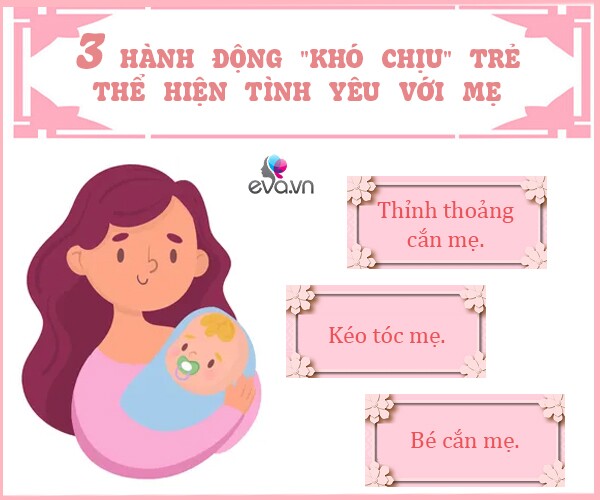As children grow up, they exhibit various behaviors that might irritate or worry mothers, such as putting their hands in their mouths, pulling hair, hugging their arms, or biting their mothers. While these behaviors are often deemed inappropriate or challenging to manage, they are natural responses during their exploration of the surrounding world.
Additionally, many other child behaviors are based on this principle. For instance, when a child hugs their mother tightly or seeks closeness when feeling insecure, they are expressing their desire for connection and seeking protection. Interestingly, there are three seemingly “annoying” behaviors that actually conceal a child’s deep love for their mother.
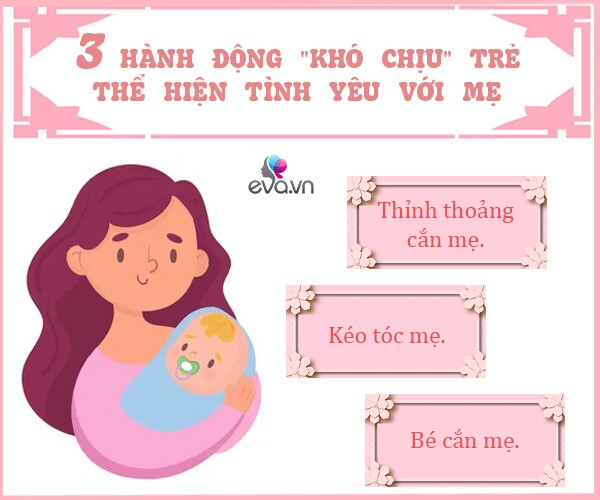

Occasional Biting
The mother, Diandian, shared that over a week ago, her daughter would only occasionally bite her face, but in recent days, the girl has lost control and has been biting more frequently. This action is the child’s way of expressing closeness and affection towards their mother. However, when a child is teething, they might unintentionally bite their mother.
When children bite, they may not realize that their action can cause discomfort or even pain to others. Sometimes, if the bite is painful, the mother might still react angrily, which can lead to unwanted negative responses. Nonetheless, young children usually have no intention to harm and are mostly expressing their emotions and needs.
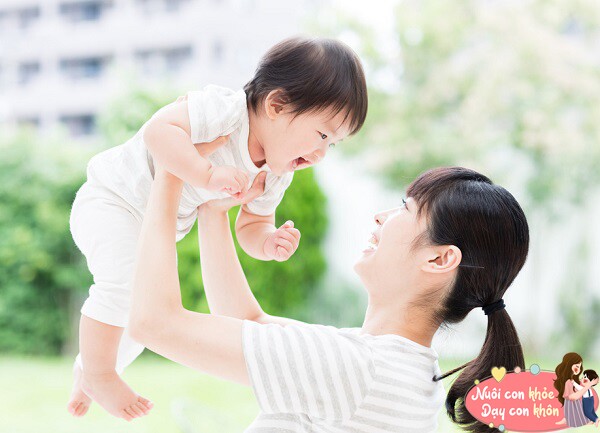
Infants naturally crave attachment to their mothers.
In such situations, it’s crucial for parents to remain calm and not let negative emotions take over. Biting often stems from curiosity or a desire to explore, and overreacting can make the child feel rejected or unloved. Instead of scolding, mothers should find ways to help children understand that biting is not an appropriate way to show affection.
Therefore, in the face of a child’s love, parents should guide and support them in timely modifying this habit. An effective approach is to encourage children to express their feelings differently, such as through hugs or kisses. Mothers can say to their children, “I prefer when you hug me instead of biting”, helping them understand that there are multiple ways to express love without causing pain to others.

Pulling Mother’s Hair
All mothers have experienced their children pulling their hair at some point. Whether out of joy, excitement, or anger, children express their emotions through their mother’s hair. While this action can be annoying, it is a typical part of a child’s development.
Infants are dependent on their mothers and, therefore, tend to love them more than others. This bond is essential as it creates a sense of security and shapes how children interact with their surroundings. When children pull their mother’s hair, they are not only expressing their love but also conveying a desire to be closer to their mother or simply being curious about her hair.
It is also a means of exploration. Children are curious about the world around them, themselves, and their loved ones. Their mother’s long, soft hair becomes an intriguing object of exploration.
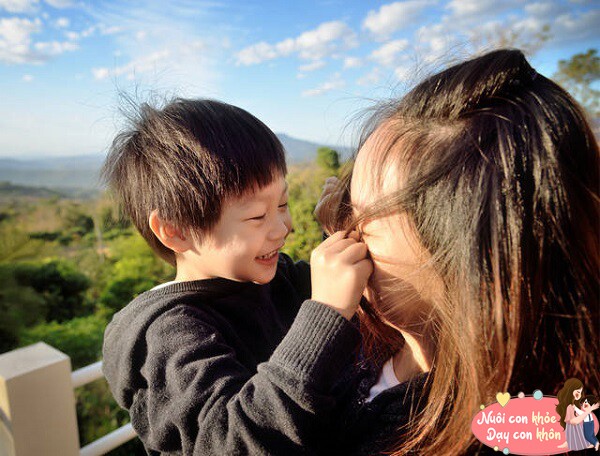
All mothers have experienced hair-pulling by their children.

Hitting the Mother for No Reason
Many children like to lift their tiny hands and touch their mother’s face, neck, or arms. These actions can be awkward for mothers, especially when the child continuously explores through touching or gentle slaps.
However, in the child’s mind, they are unaware of the seriousness of their actions. Whether it’s touching, holding, or hitting, the child is exploring and interacting with their mother. Young children often use their hands as a tool to learn about their environment, and their mother is a significant part of that world.
This behavior is not a sign of defiance or anger but a natural way for the child to connect and express their feelings towards the person they love the most.
Nevertheless, when a child hits someone, parents are advised not to pretend to be hurt or hit back. Such behavior will make the child think that we are playing along, leading to misunderstandings in communication.
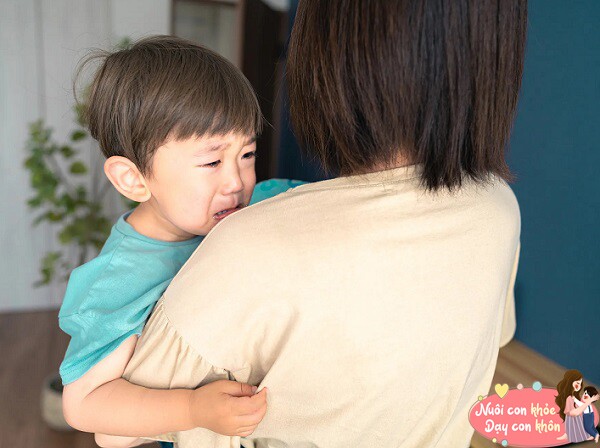
Young children don’t know how to express their love appropriately and need guidance.
Instead, mothers should calmly tell the child that hitting is wrong, pointing out the inappropriate behavior and the importance of respecting others. When the child reaches out, the mother can gently tap or clap their hands, helping them understand that there are alternative ways to express emotions without hurting others. This is also a great opportunity to teach children about empathy and positive communication.
Additionally, parents should engage more with their children to divert their attention. Fun activities like playing games, singing, or reading books can make children feel happier and more relaxed, reducing unwanted behaviors.
When mothers understand the intentions behind these three behaviors, they can perceive their child’s pure love. Young children often struggle to express their feelings clearly, so parents should refrain from reacting harshly and instead guide them toward appropriate behavior.
By being patient and empathetic, children will feel loved and accepted, leading to better social skills and psychological development. Over time, they will learn that love can be conveyed in numerous ways.


























